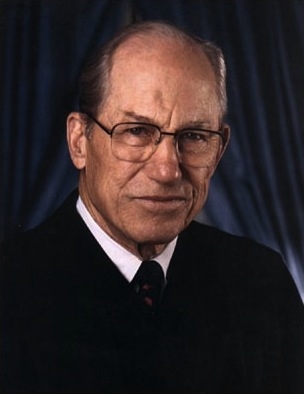On this day in 1962: JFK announces Byron White, former Detroit Lions halfback, as SCOTUS pick

On March 30, 1962, President John F. Kennedy announced that he would appoint Byron White to the U.S. Supreme Court. White at the time was a deputy U.S. attorney general and a former Detroit Lions player.
“He has excelled in everything he has attempted – in his academic life, in his military service, in his career before the bar and in the federal government – and I know that he will excel on the highest court in the land,” Kennedy said at the time.

White was born and raised in Colorado. Early in his life, he was an All-American halfback for the Colorado Buffaloes football team. He later played halfback for the Detroit Lions in the National Football League (NFL) during the 1940 and 1941 seasons. Nicknamed “Whizzer,” he led the NFL in yards from scrimmage his first season in the Motor City.
He was elected to the College Football Hall of Fame in 1952. He is also a member of the Michigan Sports Hall of Fame and was posthumously awarded the Presidential Medal of Freedom in 2003 by GOP President George W. Bush.
White enlisted in the U.S. Navy during World War II and earned a Bronze Star for his heroism. After his wartime service, White earned a degree from Yale Law School in 1946.
On April 3, 1962, Kennedy formally nominated White to be an associate justice of the Supreme Court, succeeding Charles Evans Whittaker.
White served on the nation’s high court between 1962 and 1993. During his tenure, White was one of five justices who voted in Furman v. Georgia in 1972 to strike down several state capital punishment statutes. He was concerned about the way in which the death penalty was administered. White routinely supported the court’s post-Brown v. Board of Education attempts to desegregate public schools.
However, he offered a dissent in the 1973 Roe v. Wade case that legalized abortion. He described the case “an exercise in raw judicial power” and criticized the court majority for “interposing a constitutional barrier to state efforts to protect human life.” And White wrote in a 1986 decision that consenting adults have no constitutional right to private homosexual conduct.
Upon White’s retirement, President Bill Clinton nominated Ruth Bader Ginsburg to replace him.
Byron White died at 84 on April 15, 2002.
“Justice White was a distinguished jurist who served his country with honor and dedication,” said Bush at the time of White’s death.








